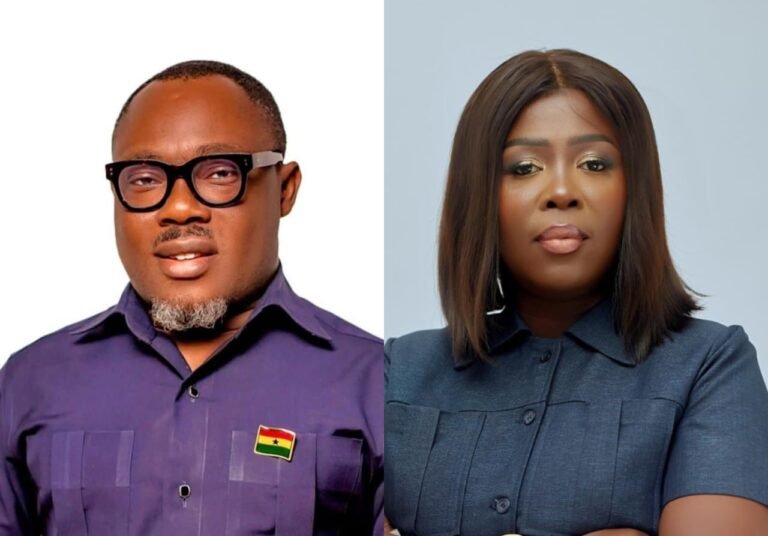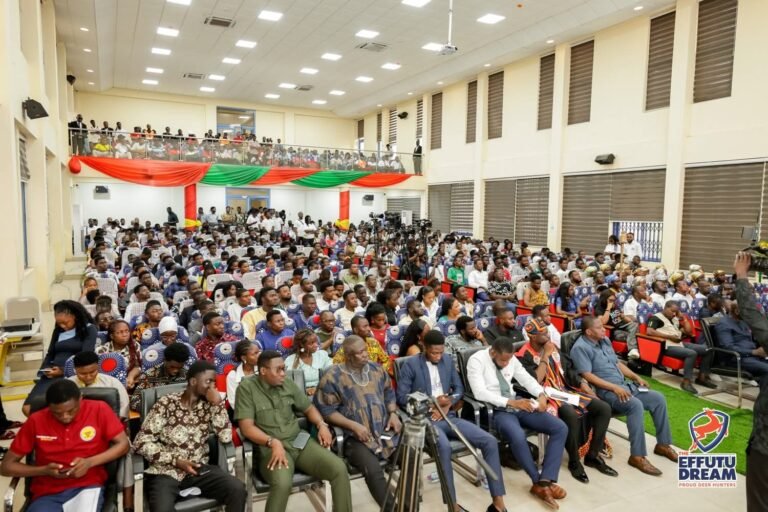
Kormer President John Agyekum Kufuor has called on the leadership of the New Patriotic Party (NPP) and individuals aspiring to lead the party into the 2028 general elections to put aside excessive individualism and internal rivalries, and rally around the core values of the party.
Speaking during the official launch of the Patriotic Institute at the NPP’s national headquarters in Accra, the former President described the creeping culture of self-centeredness and entitlement within the party as a major obstacle to its cohesion and electoral success.
“Along the way, we found that even as we all subscribed to democracy, we tended to be too individualistic. Egos were so big. Everybody would go and look into his mirror and think that he is, perhaps, superior or better than the next man. A party must be united. We must be reconciled. But if we’re going with swelling egos and this ‘I’m entitled, it’s my turn’ mindset, then where do we get the unity? And without unity, how can you call yourself a party?” he stated
Past mistakes
Mr Kufuor also reflected deeply on the party’s trajectory and the mistakes that had led to its current political challenges. Drawing on the NPP’s electoral performance in 2016, 2020, and the most recent 2024 general elections, he urged introspection and truth-telling among party members.
He cited the tradition’s defeat in the 1979 elections as a historical lesson in how “me-too-ism” and disunity could cost a party dearly. According to him, the failure to rally around a common candidate and the infighting among factions handed victory to the opposition, despite the strength of the NPP’s ideas and traditions.
“This disease of high individualism, ‘me-too-ism’ was what led to our losing the 1979 election… I’m not so much against tradition as the personalism in our party. We tend to be too self-centered,” he further indicated.
Enduring NPP values
The former President further called on the newly inaugurated Patriotic Institute to remain anchored in the foundational values and ideological heritage of the party, by promoting its enduring principles of democracy, rule of law, private enterprise, and responsible governance.
The Patriotic Institute is a party-based think tank and training centre designed to provide ideological grounding, policy direction, and strategic communication skills to its members and aspiring leaders.
He said the time had come for the party to invest deliberately in ideological education that would deepen the understanding of power and leadership among its members, especially the youth.
“The Patriotic Institute must impart a deeper awareness, awareness of what getting involved in politics truly means. It’s all about power. If you don’t have power, you are dead. But when you do, you must use it to serve the general purpose of making life better and happier for all,” former President Kufuor said.
Principles
According to him, the NPP is not built on personalities, but on timeless principles that must be preserved and transmitted across generations. He cautioned against the cult of individualism in political life, reminding the party’s rank and file that no one individual, including himself, defines the party.
“Yes, J.B. Danquah espoused democracy, but the party is not Danquah. The party is not Dr. Kofi Abrefa Busia. John Agyekum Kufuor is not the party. The party is not Nana Addo Dankwa Akufo-Addo. Not any one man. It is the principles, the undying principles that define our Danquah‑Busia‑Dombo tradition,” he stressed.
Former President Kufuor said the Patriotic Institute must serve as a sacred space for reaffirming these values and for training a new generation of party activists who understand that politics is not a tool for personal enrichment, but for national service.
He described the Patriotic Institute as “very strategic”, noting that while it has great potential, it could also be abused if not anchored in truth, discipline, and introspection.
“If we are going to be true to ourselves, then this Institute must be where we enshrine the ageless principles of our tradition: democracy, rule of law, respect for the private sector, and freedom of expression, association, and choice. And if we are all true to those principles, then our party will be the party of now and the future,” he stressed.
Counsel
He urged the youth to embrace the tradition’s core values—democracy, rule of law, property-owning democracy, freedom of expression, and the pursuit of strong economic foundations that serve all citizens.
He further warned against complacency, highlighting how propaganda by opponents had successfully created a false tribal perception around the NPP. He said the party must confront such challenges head-on.
“Our party has suffered a lot because our opponents, with their powerful organisation and propaganda, have succeeded in making many parts of Ghana think our party is tribally based. That perception, if left unaddressed, could cost us electorally,” he added. The former President stressed that party membership did not automatically imply personal friendship, but a shared vision to secure power and serve.
“That we are in a party doesn’t mean we are friends. What it means is that we share the vision that this party is the vehicle we need to get power. And if the sole purpose of the party is to win power, then let’s close ranks not as friends, but as visionaries committed to using the party machinery to deliver for the people,” he added. He challenged the youth to reject a dependency mindset, urging them to work with integrity, self-respect, and a spirit of pragmatism in confronting the nation’s development issues.
The launch ceremony brought together key figures of the party, including former Speaker of Parliament, Professor Aaron Mike Oquaye; Hackman Owusu-Agyemang, Chairman of the NPP Council of Elders; former Vice President and 2024 NPP Flagbearer, Dr. Mahamudu Bawumia; former Chief of Staff, Akosua Frema Osei-Opare; former Majority Leader, Osei Kyei Mensah Bonsu; former General Secretary, John Boadu; former National Chairman, Freddie Blay; NPP General Secretary, Justin Frimpong Kodua; Minority Leader, Alexander Kwamina Afenyo-Markin, and former Ministers of States, Chief Executive Officers, among others.




